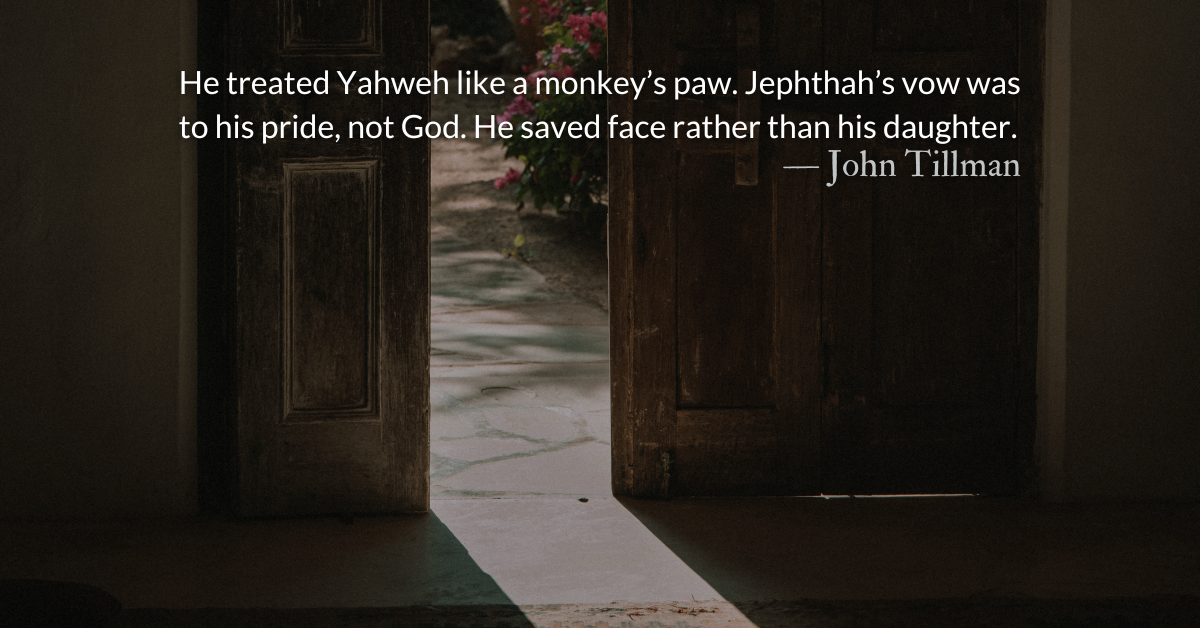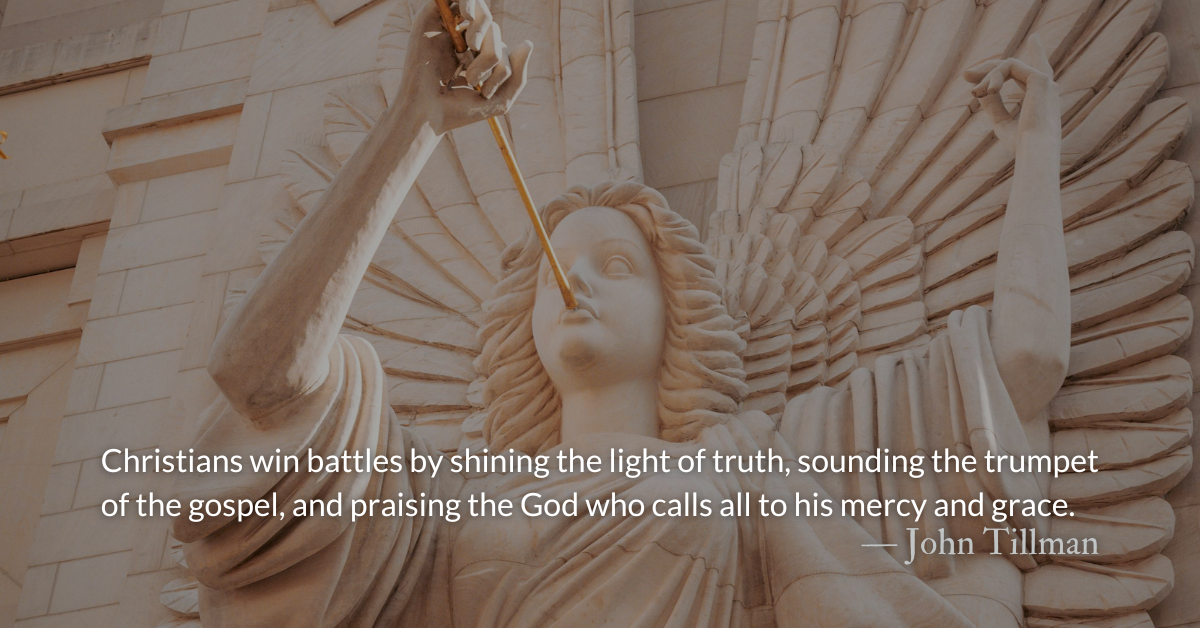Links for today’s readings:
Read: Judges 11.12-40 Listen: (5:53) Read: 1 Peter 3 Listen: (3:30)
Scripture Focus: Judges 11.23-24, 30-31
23 “Now since the Lord, the God of Israel, has driven the Amorites out before his people Israel, what right have you to take it over? 24 Will you not take what your god Chemosh gives you? Likewise, whatever the Lord our God has given us, we will possess.
30 And Jephthah made a vow to the Lord: “If you give the Ammonites into my hands, 31 whatever comes out of the door of my house to meet me when I return in triumph from the Ammonites will be the Lord’s, and I will sacrifice it as a burnt offering.”
Reflection: Allowing Injustice to Save Face
By John Tillman
Before going to war, Jephthah asked the king of Ammon why he was attacking them. Ammon’s king responded with “alternate facts” and manufactured historical claims that he lost land to Israel that he never possessed.
Jephthah corrected the record. Israel held the land for 300 years and Ammon never possessed the land. Jephathah claimed the land was given by God. As part of this argument, Jephthah reasoned, “Will you not take what your god Chemosh gives you?” (v 24) This argument has a hint of theological trash-talking “Can your god take what our God gave us?” Jephthah’s attempt at diplomacy was short-lived and he informed the king of Ammon that the result of the battle would be up to Yahweh.
Jephthah was correct about history and that the battle was theological. But he was wrong about Yahweh.
In W.W. Jacob’s story, The Monkey’s Paw, a cursed monkey’s paw fulfills wishes through a mysterious and malicious power. For example, when a family wishes to pay off their mortgage, their son dies in a factory accident and the factory pays the family the wished-for amount.
If Jephthah wanted to make a sacrifice of thanksgiving after his victory, scripture clearly described how. None of scripture’s sacrifices resemble Jephthah’s vow. Jephthah contrasted Yahweh with Chemosh, but then treated God as if he was a transactional, deal-making Canaanite deity. He treated Yahweh like a monkey’s paw. Jephthah’s vow was to his pride, not God. He saved face rather than his daughter.
When we make rash vows to God or promises on his behalf, we fall for Jephthah’s error. God did not then and does not now demand dramatic vows or sacrifices. That’s how the world works, not how God works.
Those who rule over us, tell us a false history—they own us and we owe them. They expect vows of loyalty for blessings. God corrects the record. The sacrifices God requires from us are a broken spirit and a contrite heart, not extravagant promises. The obedience God requires is to do justice, love mercy, and walk humbly, not to proudly swear and boast, refuse to be merciful, and allow injustice to save face.
God is not a monkey’s paw god who extracts a price from us for blessings. God has paid the price through Jesus. He has disarmed the powers and set us free. Every blessing we need is ours in him.
Divine Hours Prayer: The Greeting
Whom have I in heaven but you? And having you I desire nothing upon earth. — Psalm 73.25
– Divine Hours prayers from The Divine Hours: Prayers for Summer
by Phyllis Tickle
Read more: Timbrels to Tears
May this remind us that our faith is not a formula, nor is faithfulness a series of divine negotiations that we can manipulate…
Read more: Rulers with Borrowed Scepters
Jesus is the king we are waiting for—every other ruler is using a borrowed scepter.





